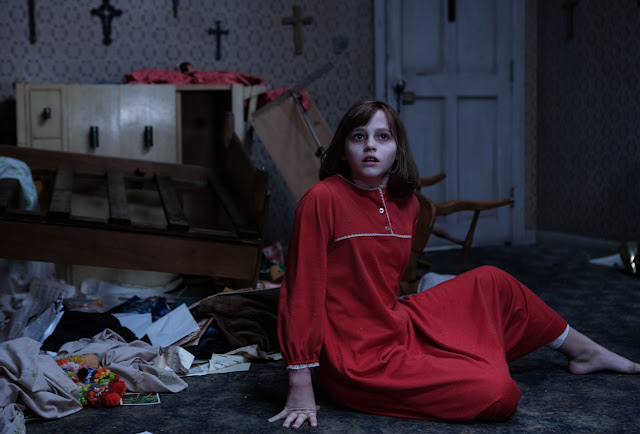“A masterful telling of how money corrupts anything it
touches.”
Money, power, and greed are the general themes of Paolo Virzi’s Human Capital (Italian: Il capital umano), an Italian film based
on the novel Human Capital by
American author Stephen Amidon. While the book is originally set in
Connecticut, the film happens in northern Italy where the economy goes
spiralling downward. The financial upheaval and a road accident will intertwine
two families and measure how they value their self-worth and the people they
care the most.
The film opens begins on the eve of Christmas. A waiter
working at a prestigious private school is cycling back home when he is hit by
a car. The driver immediately flees, leaving the cyclist mortally wounded.
After the short prologue, the movie then tells the story in four chapters. In
the first chapter, we meet Dino Ossola (Fabrizio Bentivoglio), a struggling
local middle-class businessman. His fate soon changes when he meets the father
of his daughter Serena’s (Matilde Gioli) boyfriend. Giovanni Bernaschi
(Fabrizio Gifuni), always in expensive suits and silk robes, is the typical
elite cunning business shark. Their simple tennis game becomes an opportunity
for Dino to enter the volatile business world. With his borrowed seven hundred thousand
Euros, Dino invested into a high-yield hedge fund. But six months later, Dino’s
initial success turns sour.
In the second chapter, we are introduced to Giovanni’s
glamorous wife Carla (Valeria Bruni Tedeschi), once an actress who left her
craft to pursue the rich man. Upon passing the doomed local theater which is up
for sale, she convinces Giovanni to buy it for her with the idea of restoring
its former grandeur. Along the process, she strikes a romantic attraction with
intelligent and passionate college professor Luigi Lo Cassio (Donato Russomanno) who is one of the theater’s trustees. With the economic downfall,
Giovanni shocks her with the plan of simply selling the theater.
The third chapter is all about Dino’s beautiful and
kind-hearted daughter Serena. Though she appears to be romantically involved
with Giovanni’s spoiled son Massimiliano (Guglielmo Pinelli), she is not in
love with him anymore. She has already set her heart to unstable and troubled
Luca. But one Christmas eve, Luca makes a mistake that forever alters the lives
of the two families.
Human Capital is
neat, confident and tasteful. It’s storytelling is slick and stylish as it is
told in chapters, going back and forth with the characters and through certain
common events like the tennis game in the Bernaschi’s, a private
school students awards ceremony and the road accident. Though each chapter has
its individual character and world, they touch similar themes like the
destructive charm of money and greed, the arrogance of the elite, the taunting
of guilt, and how modern capitalism treats everything as raw materials. Each
chapter is told in measured pace and with such intensity. Through all the
drama, there is that lingering mystery that keeps the movie afloat – who hit
the cyclist?
The film also succeeds with the strong and powerful performance
of its cast, particularly with the three leads. With a comic-style delivery,
Bentivoglio brings charming but devious desperation for Dino. As Serena, Gioli
has shown both tenderness and harshness, all in the name of love. Ultimately,
it is Tedeschi who stole the show. With Carla, she delivers the most affecting
performance by giving profound understanding and emotion to her character. A woman
once loyal to her craft, she was tamed by money and comfort. So when her idea
failed, she breaks into a helpless soul but later summons the will to stand up.
Efficiently, Tedeschi brings the range required for her role. Other main casts
are also outstanding like Gifuni as the ruthless Giovanni and Andrea Bottazini
as Dino’s supportive wife.
Though its ending is too overwrought and safe to cement its
social mockery, Human Capital does
well in portraying how money corrodes family, relationships and passions with its
elegant cinematography, tight plot and praiseworthy performance of the cast. It
is fast, riveting and self-reflective in the end.




























0 comments:
Post a Comment